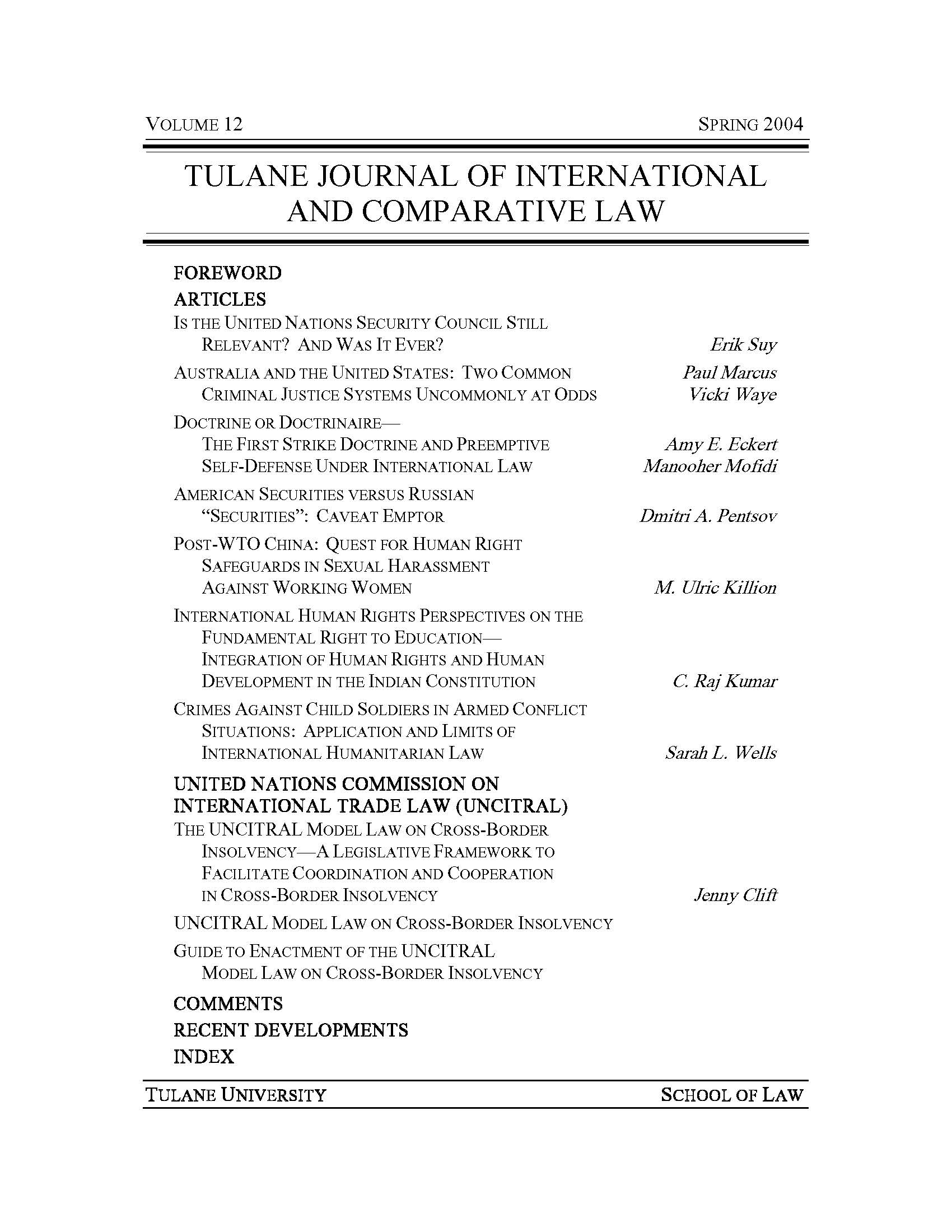Doctrine or Doctrinaire— The First Strike Doctrine and Preemptive Self-Defense Under International Law
Abstract
In response to the post-9/11 security landscape, the Bush Administration proposed the
“Bush Doctrine,” whose the central tenet is preemptive action, undertaken unilaterally, if necessary,
against “hostile states” and terrorist groups alleged to be developing weapons of mass destruction.
This Article develops a coherent statement of the Bush Doctrine and then reviews the legal and
political predicates to the war against Iraq, considered the Bush Doctrine’s first test case.
Following this discussion, the Article examines the idea of preemptive self-defense in international
law. It next considers whether the U.S.-led war against Iraq satisfied the standard for preemptive
self-defense under international law. A meritorious claim of preemptive self-defense requires
establishing an imminent threat that precludes the target of the threat from utilizing UN
mechanisms. This Article argues that such a threat has yet to be established in the case of Iraq.
While in theory the Bush Doctrine purports to provide security and spread the rule of law, in
practice it may have the opposite effect.
